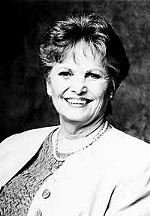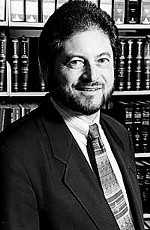Extra Credit
Grading the Governor
By Kevin Fullerton, Fri., May 28, 1999
"One can't look at his legacy and say, 'He's the education governor,'" says Association of Texas Professional Educators spokesman Larry Comer. "I don't think he'll be remembered for that at all." Teachers' groups are thankful that the conservative governor hasn't fought teacher raises, but neither have they found him a faithful friend. Throughout his term, Bush has encouraged teachers to improve their skills through university seminars, but has repeatedly waffled on increasing their pay.
School boards, on the other hand, have enjoyed the increased autonomy Bush championed for them when the Legislature rewrote the Education Code in 1995. At Bush's insistence, the Lege scaled back the authority of the Texas Education Agency and allowed districts to open charter schools. Texas Association of School Boards spokesman David Dunn says that lessening TEA regulations while also toughening accountability standards for local districts has sent administrators the right message.
"The governor deserves a lot of credit in creating the climate for local acceptance of accountability, for making it a big issue," says Dunn. But that same "climate" also makes it easier for school districts to buy shiny new buildings and technology rather than pay teachers more for the higher demands placed on them. Legislation currently proposed in the House Public Education Committee would mandate that the $1.8 billion in new money for teacher salaries actually boost every teacher's pay, rather than allowing districts already paying above the state's base salary to divert the funds.
Since Bush took office, test scores, particularly for minority students, have steadily risen, but that may owe as much to the "Robin Hood" school finance mechanism, created by the Lege in 1993, as to the governor's exhortations. Robin Hood was created to lessen the state's critical disparities in funding across districts by redistributing local revenues from wealthy school districts to poor ones. Dunn says it's a combination of equalized funding, better accountability, and increased intervention for at-risk students that has made the system better for all. Minority advocates don't disagree.
"I think the renewed focus on holding schools accountable for educating all students has been a good thing," says Maria Robledo Montecel, executive director of the Intercultural Development Research Association, a Hispanic nonprofit in San Antonio. "We've created some shining examples of school districts who have debunked the myth that minority districts can't achieve, by taking a no-excuses position."
Other People's Work?
But much of what has helped to strengthen Texas' school system was in place before Bush ever became governor. Former TEA commissioner Lionel "Skip" Meno -- whom Bush replaced with Mike Moses when he took office in 1995 -- commends Bush for sticking to a solid plan but notes that education reform was a team effort that began during former governor Ann Richards' term. "Texas has been fortunate that everybody has built on everybody else's work," says Meno. Bush became an education reformer at a time when doing so made one few enemies. Consider the climate that existed in 1995: Texas' school funding system had been ruled unconstitutional, spurring the Legislature to create Robin Hood in 1993. Meno had introduced TEA's Academic Excellence Indicator System, the accountability system the agency uses today to record district TAAS scores and dropout rates, in 1991. Finally, TEA was up for a serious overhaul following a state Sunset Commission review in 1993. Before Bush ever presided over his first legislative session, rewriting the state Education Code was already a high priority. It was a very opportune time to make improving education a political goal.
During the 1995 session, senior Republican Sen. Bill Ratliff, who along with Democratic Rep. Paul Sadler shouldered the job of reducing the Education Code morass to a leaner, less burdensome set of guidelines, curbed Bush's proposals to remove school districts from all state regulations. Ratliff insisted that schools maintain the 22-student limit in elementary classrooms and respect teachers' rights and benefits. Bush, on the other hand, wanted to give districts the ability to hire and fire at will.
The next time the Legislature convened, in 1997, Bush proved to be merely a fair-weather friend to education when he withheld his support for House legislation that would have placed a larger share of the cost of education on big business. Bush began that session with a finance plan devised to replace Robin Hood, a system opposed by wealthy resort communities and industry. He proposed that the state radically scale back property tax rates and raise new sales and business taxes that would supply 80% of education funding. Bush pitched his plan as an end to inequitable local funding and a boon to low-income home owners, whose property tax bill would drop to virtually zilch. But the Legislative Budget Board calculated that when the new consumer taxes were accounted for, poor home owners would get only a 2.9% reduction in taxation.
Sadler's Public Education Committee proposed instead that the state close loopholes for large businesses in the existing school tax code, raising nearly $4 billion more for education, four times what Bush's plan offered, and still giving low-income residents a hefty tax break. Sadler's bill passed the House. But in the Senate, where corporate money and influence is more concentrated, the bill stalled, and Governor Bush's support for it suddenly evaporated.
This session, there's no talk from the governor about revamping the school finance system by creating new taxes. Instead, Bush has again harped on cutting property taxes, threatening to hold proposed teacher raises hostage if the Legislature doesn't come up with $2.5 billion in cuts. That standoff has been eased considerably by the recent report from the comptroller showing that Texas' budget surplus is larger than originally forecast; it now looks as if Bush will get to deliver a tax cut without shafting teachers. TEA Commissioner Mike Moses defends Bush's stand on taxes, saying that Bush has always said he supports teacher raises but that "there's a certain amount of posturing that has to take place." Moses agrees with former commissioner Meno that the pre-Bush equalization of school finance has contributed heavily to schools' improvement, and a recent Texas A&M report confirms it. Moses says, however, that Bush has been dead set against disturbing that equilibrium.
That may be true, but it's also true that Bush has declared opposition to Robin Hood. His school finance plan of 1997 -- progressive as it may have been in attempting to establish a state-financed system, divorced from local property taxes -- was also a sop to capital-intensive industries who under Robin Hood have to help pay for schools in poorer districts.
Social Promotion
This session we're also seeing Bush present what he calls the capstone to Texas' reformed education system: the end of social promotion. The idea of holding kids back in grades until they pass minimum standards is, of course, an old dog that has never hunted. The first experiments with this policy date back to the 1930s, and it has been tried on and off for the past 30 years. The results have seldom been good. Kids do no better the second time around, become potential dropouts, and cost the schools bundles. Bush's message to educators is that Texas schools are now equipped with sufficient resources to remediate low achievers and put them back on track, and he cites his third-grade Reading Initiative as a centerpiece program.
"The foundation has been laid. The tools are in place. Now we must take it one step further and end social promotion," Bush told a TEA conference in January. But his plan has no provision to hire any additional school personnel to aid low achievers, offering instead about $190 million to train teachers in grades K-2 in advanced reading instruction and to pay for extended day programs and summer remediation courses. Funding for the Reading Initiative will be supplied through grants which local districts apply for. But who's to say school districts will spend new state funding for the remedial programs for which the money is intended? Currently, minority advocates say, districts are using legislatively mandated Alternative Education Programs as a repository not only for violent kids, but for low-performing ones as well. TEA reports show that disproportionately high numbers of minorities are being removed from regular classrooms, and from taking the TAAS test, for various learning disabilities and exemptions that make them "untestable." Charter schools, it turns out, end up with high numbers of these exempted students. Ending social promotion, touted as a way to rescue struggling students, could in reality become a license for local districts to create two-tiered education.
Bush's primary focus on local autonomy, greater accountability, and remedial intervention in schools have certainly benefited Texas' education system in important ways. But his demanding approach has its dark side, especially when the governor has not been willing to risk addressing the system's deepest, darkest weaknesses: Teacher pay (currently 38th in the nation) and low high-school completion (currently in the bottom five nationally). Bush's education program makes more demands than it offers rewards and still excludes far too many troubled kids from participating fully in education.
Neither has the governor stared down the school finance dilemma with true courage. Like the proverbial rich uncle, Bush has been ever ready with motivational wisdom, moral platitudes, and maybe even a new baseball glove for his beneficiary. But when true crises hit, when his nephew most needs protection from bullies or a patient ear in which to confide deep fears, Uncle George isn't around.
Got something to say on the subject? Send a letter to the editor.








